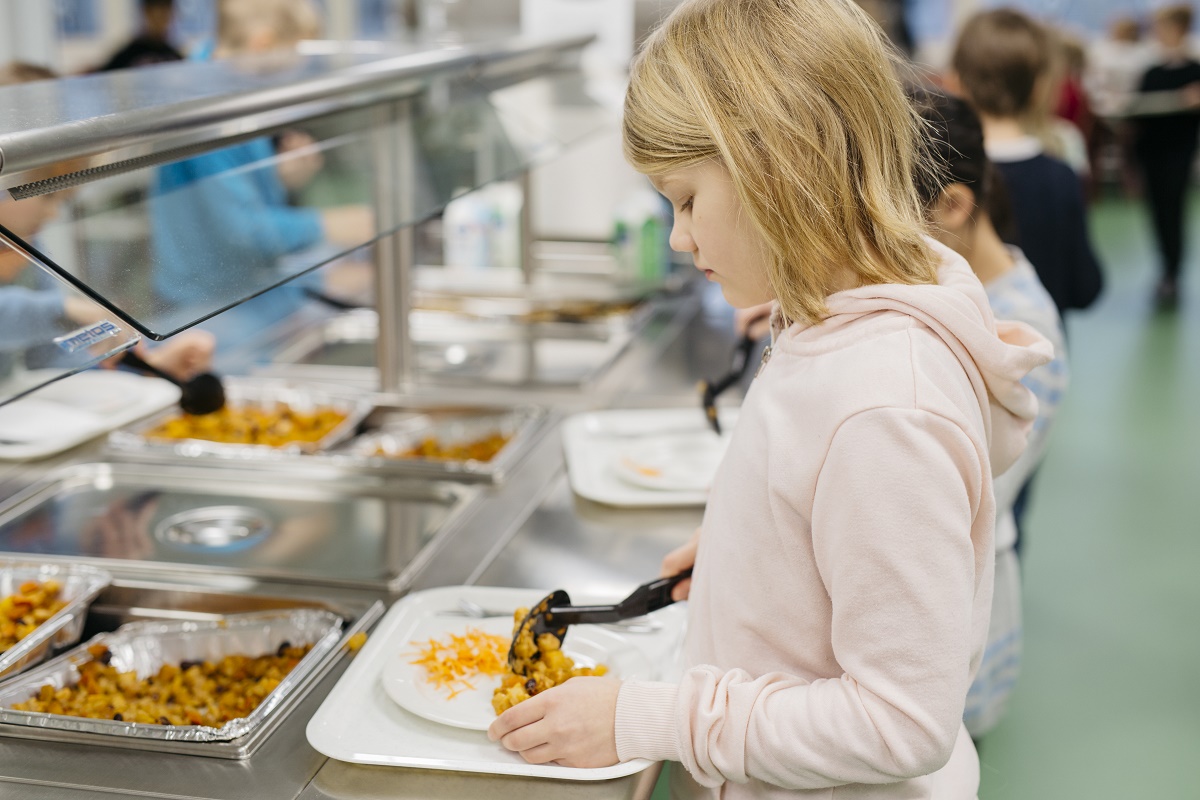Toward school meals to all
Barley porridge, macaroni casserole and chicken fricassee - Finns are familiar with the classics of school meals. The international goal now is to include all the world’s children in school feeding by 2030. Minister for Development Cooperation and Foreign Trade Ville Skinnari, who serves as the World Food Programme (WFP) School Meals Champion, explains why school meals pay off.

Finland is a pioneer in providing school meals – we have been offering free school meals for over 70 years. We know from our experience that school meals support the learning, health and equal opportunities of children and young people.
Minister Ville Skinnari, what kind of memories do you have of school meals?
From the very first grade, school meals meant really a lot for a young athlete. The meal gave me energy to cope well in the afternoon both in schoolyard games and other leisure-time interests. There were school meals that were not my favourites, but later I came to like them, such as cauliflower soup. The chicken fricassee was not a favourite dish either and it may not be the number one in export products, but nutrients were in order and they made us cope.
The best thing is if – and quite often when – you have only had poor breakfast and then you get proper nutrients from the school meal. Unfortunately, too many Finnish pupils pay too little attention to what they have for breakfast.
Did you appreciate school meals in the past or has appreciation come up later?
Memories grow sweeter with time - everything did not taste good at the time. Although there are challenges, I still trust the Finnish school meal system and that pupils get the necessary nutritional value from it. Sleep, nutrition and rest – also in a minister’s work you notice how important these are.
Finland was the first country in the world to introduce free school meals, a very bold act during the war in 1943. The generations that preceded us had the courage to take measures that shaped the future, but what is the future of school meals? Municipalities should not make cuts in school meals to save money, and parents too are worried about this. As the WFP School Meals Champion I wish to appeal to Finland: stick to the strengths you have!
What do you wish to achieve as the WFP’s School Meals Champion?
My main objective is to raise awareness of school meals internationally and to make different countries to introduce school meals. This is promoted by assembling an international coalition around this important issue. I lead the Coalition together with France and the World Food Programme.
The Coalition seeks to support and develop school meal programmes in different countries, to reach all children who were excluded from school meals when schools were closed because of the coronavirus pandemic. We also aim to include children who could not enjoy school meals even before the pandemic.
While the overall aim of the coalition is to include all children in the world to have school meals by 2030 efforts will be made at the same time to improve the quality of school meal programmes in high-income countries.
In addition to this international work, my aim is to export Finnish school meal expertise and solutions. Finland is a pioneer of school feeding, and the Finnish system is considered a model example of well-implemented school meals. I want to export our experiences and solutions globally together with government actors, organisations and companies.
Could Finland benefit from launching school feeding programmes in other countries?
School feeding programmes are an important promoter of food security in the most fragile countries and, as a rule, the fact that food security improves and the conditions in these countries stabilise benefits Finland in many ways.
Finland can in multiple ways support the launching of school feeding programmes in different countries and benefit from this development. For example, the Finnish business sector has a lot of expertise in practical solutions for school meals, such as digital solutions that support the planning of school meals. We have now put this expertise together – the next objective is to export it globally.